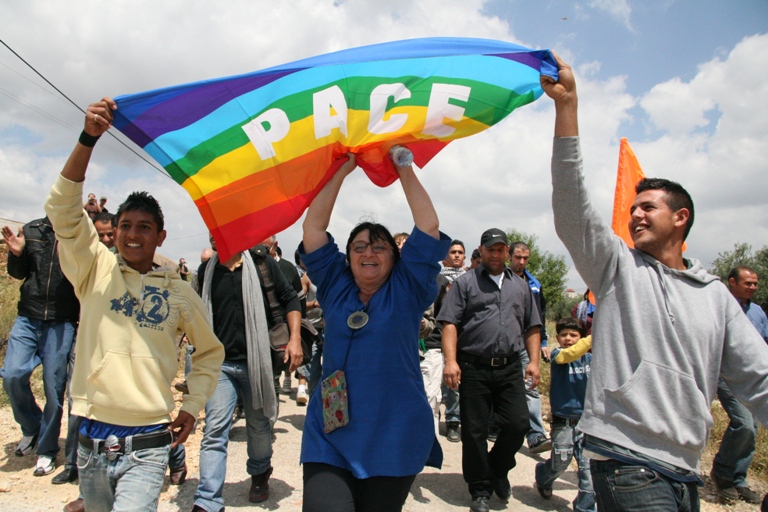Tag: Bil’in
-
April 20-23: The 6th Annual Bil’in Conference on the Palestinian Popular Struggle
As nonviolent resistance for freedom sweeps across the Arab world, join us in harnessing the winds of change at the 6th annual Bil’in Conference. What: 6th Annual Bil’in Conference on the Palestinian Popular Struggle When: 20-23 April 2011 Where: The Village of Bil’in, Occupied West Bank From Gaza to Bil’in, popular resistance to the occupation…
-
Bil’in marks sixth anniversary of anti-Wall demonstrations
19 February 2011 | Popular Struggle Coordination Committee During the weekly demonstration five people were injured and dozens suffered from server cases of asphyxia from tear gas. Hundreds of Palestinians joined by Israeli and international solidarity actives marched under the banner of unity and an end to the occupation. Today’s demonstration marked six years of…
-
One citizen wounded and dozens asphyxiated in Bil’in
28 January 2011 | Popular Committee Against the Wall Ramallah-Bil’in: A resident of Bil’in was wounded and dozens of residents, peace activists, and individuals wishing to show solidarity suffered severe asphyxiation today. This was due to extensive tear gas use in clashes resulting from the Israeli occupation forces suppression of the weekly demonstration march against…

